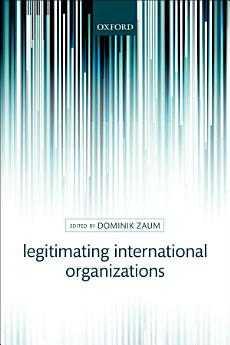Legitimating International Organizations
Dominik Zaum
sep. 2013 · OUP Oxford
Rafbók
272
Síður
family_home
Gjaldgeng
info
reportEinkunnir og umsagnir eru ekki staðfestar Nánar
Um þessa rafbók
The legitimacy of international and regional organizations and their actions is frequently asserted and challenged by states and commentators alike. Their authorisations or conduct of military interventions, their structures of decision-making, and their involvement into what states deem to be domestic matters have all raised questions of legitimacy. As international organizations lack the coercive powers of states, legitimacy is also considered central to their ability to attain compliance with their decisions. Despite the prominence of legitimacy talk around international organizations, little attention has been paid to the practices and processes through which such organizations and their member states justify the authority these organizations exercise - how they legitimise themselves both vis-à-vis their own members and external audiences. This book addresses this gap by comparing and evaluating the legitimation practices of a range of international and regional organizations. It examines the practices through which such organizations justify and communicate their legitimacy claims, and how these practices differ between organizations. In exploring the specific legitimation practices of international organizations, this book analyses the extent to which such practices are shaped by the structure of the different organizations, by the distinct normative environments within which they operate, and by the character of the audiences of their legitimacy claims. It also considers the implications of this analysis for global and regional governance.
Um höfundinn
Dominik Zaum is Reader in International Relations at the University of Reading, and a Senior Research Fellow in Conflict and Fragility at the UK's Department for International Development (DFID). His research focuses on the politics of international organisations, especially the UN, and on the political economy of international peace- and statebuilding efforts. His publications include The Sovereignty Paradox: The Norms and Politics of International Statebuilding (OUP, 2007), The United Nations Security Council and War: The Evolution of Thought and Practice Since 1945 (OUP, 2008), and Political Economy of Statebuilding: Power after Peace (Routledge, 2012).
Gefa þessari rafbók einkunn.
Segðu okkur hvað þér finnst.
Upplýsingar um lestur
Snjallsímar og spjaldtölvur
Settu upp forritið Google Play Books fyrir Android og iPad/iPhone. Það samstillist sjálfkrafa við reikninginn þinn og gerir þér kleift að lesa með eða án nettengingar hvar sem þú ert.
Fartölvur og tölvur
Hægt er að hlusta á hljóðbækur sem keyptar eru í Google Play í vafranum í tölvunni.
Lesbretti og önnur tæki
Til að lesa af lesbrettum eins og Kobo-lesbrettum þarftu að hlaða niður skrá og flytja hana yfir í tækið þitt. Fylgdu nákvæmum leiðbeiningum hjálparmiðstöðvar til að flytja skrár yfir í studd lesbretti.




